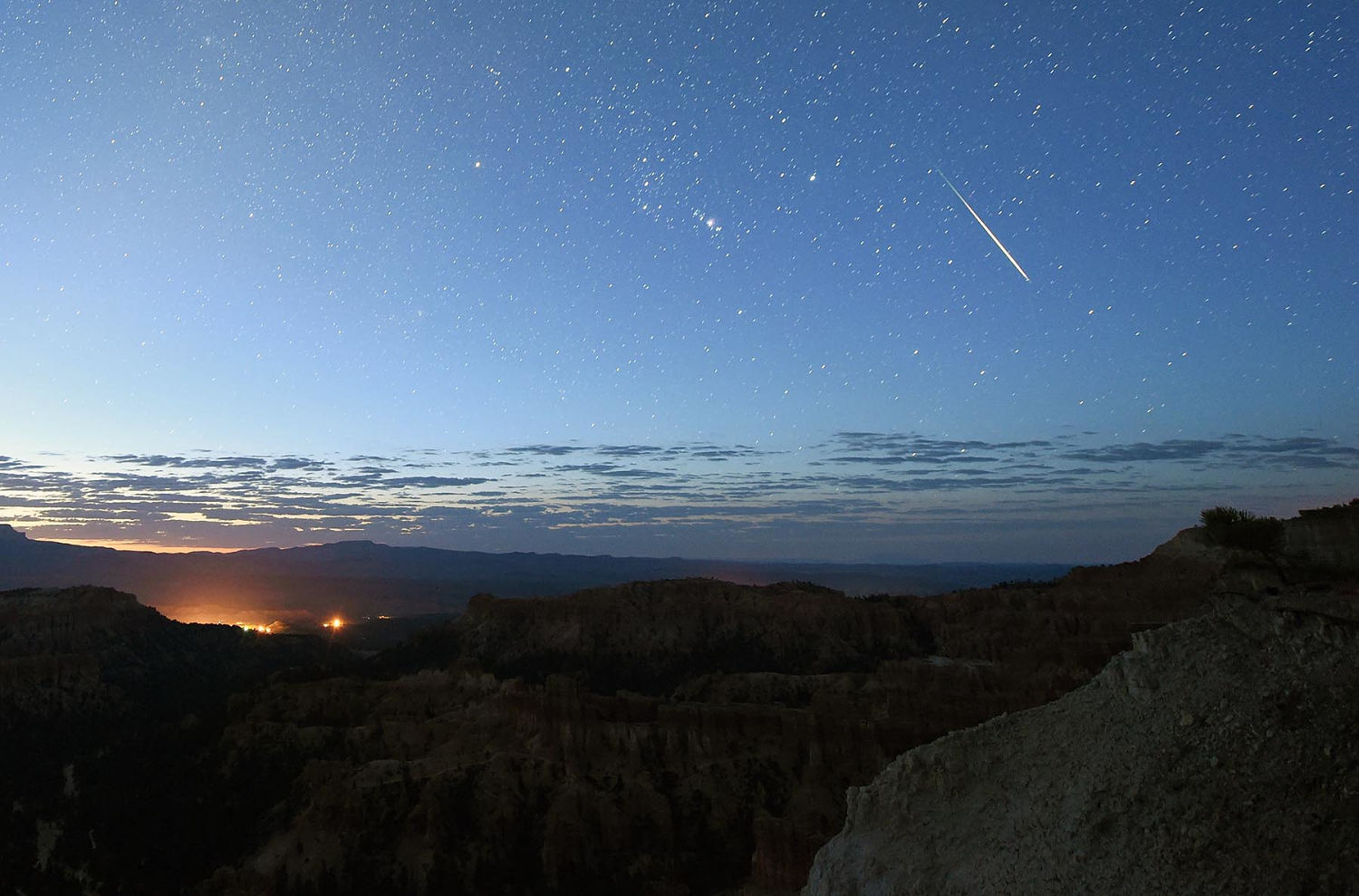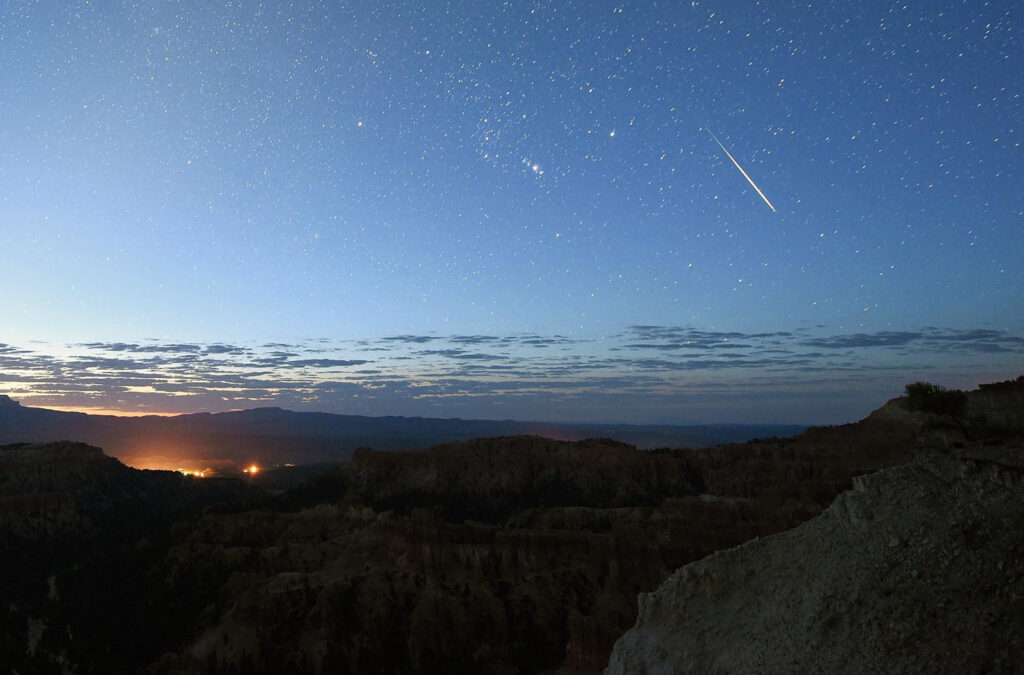
Three different meteor showers are happening at the same time this month, giving skywatchers plenty of chances to spend their summer nights looking for shooting stars.
The annual alpha Capricornids, the Southern delta Aquariids and the Perseid meteor showers are all currently active, with each celestial show set to last through mid-August.
Here’s what to know about these meteor showers, and where and how you can spot shooting stars.
The alpha Capricornids
The alpha Capricornids and the Southern delta Aquariids will peak in activity at the end of this month, overnight from July 29 to 30, while the Perseids — often considered the best and most reliable shooting star display — will ramp up to its peak next month.
Skywatchers will likely encounter mostly favorable conditions for catching meteor showers this July, according to the American Meteor Society.
The alpha Capricornids meteor shower is not typically a strong display, but it can produce a number of bright fireballs while active. At its height, the meteor shower can produce around five shooting stars per hour under dark skies and clear conditions, according to the American Meteor Society.
The shower gets its name because the meteors appear to stream from the constellation of Capricorn. During this year’s peak, the moon will be only 27% full, offering people on either side of the equator a chance to catch the celestial show.
The alpha Capricornids meteor shower occurs when Earth passes through clouds of dust particles and debris from the comet 169P/NEAT, which completes one orbit around the sun every 4.2 years. As pieces of debris hit the planet’s atmosphere and vaporize, they create bright streaks of light that sometimes leave behind bright trails.
The Southern delta Aquariids
The Southern delta Aquariids, as their name suggests, are best viewed from the Southern Hemisphere. This meteor shower is capable of producing up to 25 meteors per hour under ideal conditions, but the shooting stars are typically fainter.
Southern delta Aquariids can be tricky to spot, according to NASA, but the best chances this year will likely be in the early morning hours.
The meteor shower is thought to be caused by pieces of the comet 96P/Machholz, which completes one orbit around the sun every 5.2 years.
The Perseids
Finally, the Perseids meteor shower is underway and is expected to peak overnight from Aug. 12 to 13. The Perseids are usually one of the most highly anticipated skywatching events of the year because the meteor shower occurs during warm summer months in the Northern Hemisphere and it typically delivers a high rate of shooting stars. Under ideal conditions, the Perseids can produce as many as 100 shooting stars per hour.
This year, however, the moon will be around 84% full, which will likely wash out meteors and “severely compromise this shower at the time of maximum activity,” according to the American Meteor Society.
“Such conditions will reduce activity by at least 75% as only the brighter meteors will be visible,” the society said in its forecast.
The Perseids shower occurs when Earth passes through a cloud of dust particles and debris left over from a comet known as 109P/Swift-Tuttle.
